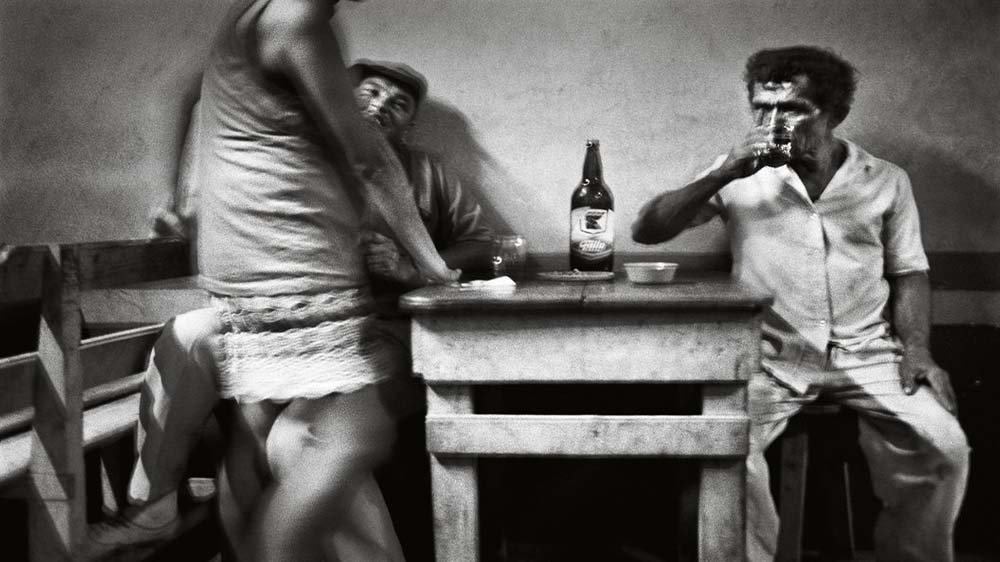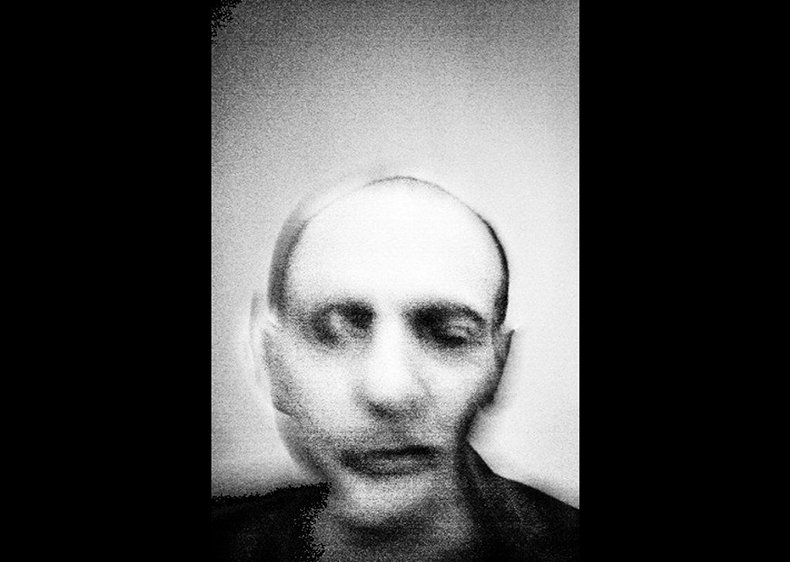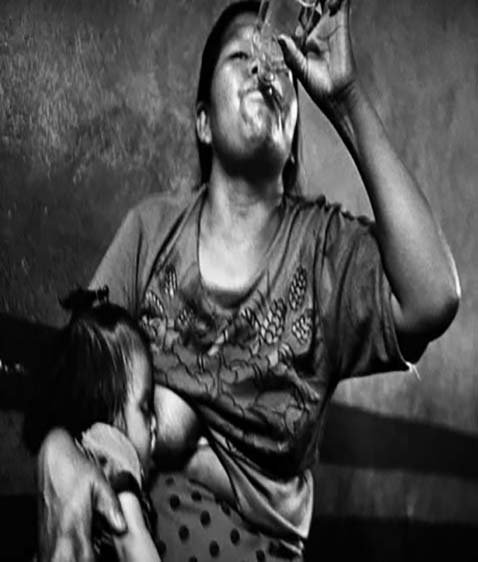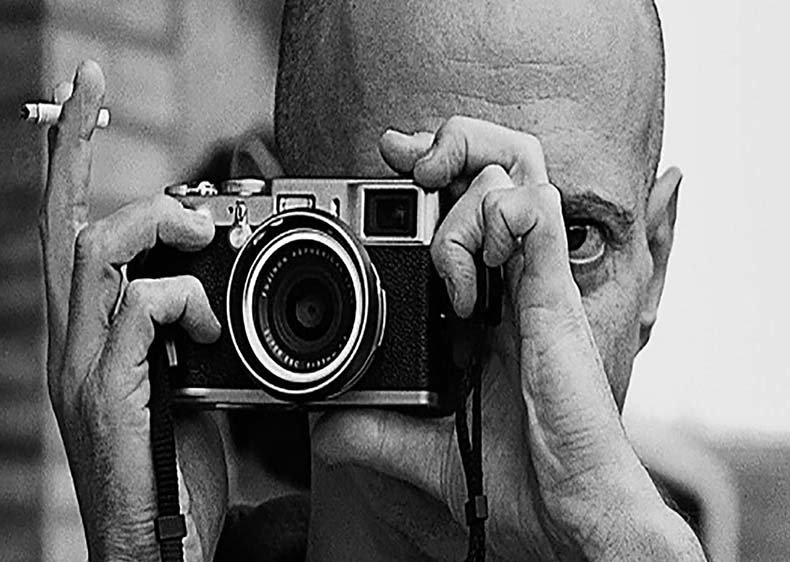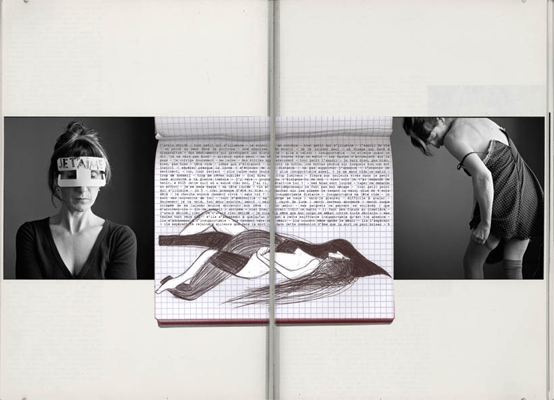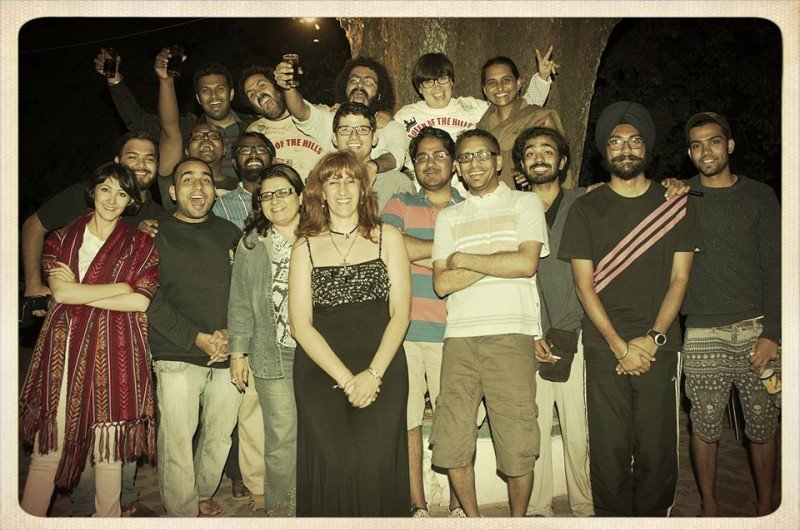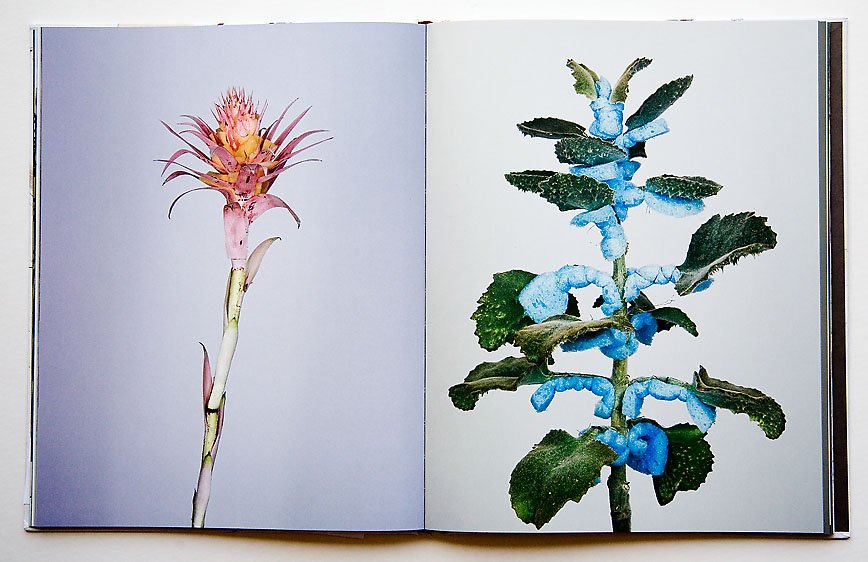THIS STORY CONTAINS EXPLICIT CONTENT
France –
French photographer Antoine D’agata’s work is dark, introspective and shockingly bold. A photographer for Magnum Photos, Antoine has published over 5 books. Our editor-in-chief, Manik Katyal caught up with Antoine in Siem Reap, Cambodia during the Angkor Photo Festival in December 2012 . Antoine talks about his life, Magnum, his family and his association with the underworld in this two part interview with Emaho Magazine –
Manik: So Antoine,how long has it been since you started photography?
Antoine: Twenty years. I started in ‘97
Manik: Twenty years. So how has the experience been so far? You mentioned in one of your interviews that it was one of your friends who actually inspired you. So what was the inspiration?
Antoine: The inspiration was that we were travelling together and he was very sick. He had aids and he was a photographer. And he knew this was the last trip he would make. And he was photographing it all day. And I was trying to understand why he was photographing it and I didn’t understand why. And I think it was sometime, years later that I saw that photography was a unique way to get in touch with the world, to grab the world and to hang on to it and this is what he was trying to do. He was trying to catch little things and I’m sure it was not even good photography but just trying to be alive and just trying to be with the world. So even if I didn’t understand all this, a couple of years later, I was in New York, exhausted from ten years of excess and various experiences, instinctively I knew that photography was kind of easy way to go back to life, to go back to being alive.
Haiti, 1997
Manik: So was he a really close friend of yours? Did you share certain moments or experiences that got you into photography?
Antoine: He was a very close, old friend. And during the week with him I took some pictures, very few pictures. I remember one day I woke up with a girl and I didn’t know who she was. I was drunk the night before, I went to some bars and I made a photo of her in the morning, and of some kids face in the streets, some soldiers walking by, and that’s it. For me it stuck there. And three years later, I was really desperate to find a keep…because I was exhausted mentally and physically and I was looking for a way to keep going. I think it was just a few images that kept a mysterious, strange tool which I didn’t know how to use or the real meaning of it but it was like “oh this could be a way” and I went to photography for this reason.
Manik: So that’s how it started! Well, one thing I have to ask after seeing a lot of your work is, what human emotions do you try to bring out or portray with your work?
Antoine: It’s now been 14 years that I’ve been photographing, and everyday, I never asked myself, never specifically “What am I photographing?” Of course some people come back to me with specific perspective and understandings of the world and evoke different feelings but myself, I haven’t even tried to define it. I sense it, I try to go further, to explore further, and in terms of intensity, or what when . Of course there is fear and awe and there is ecstasy and what you can identify easily certain inhibitions. But again its like my way of photographing is asking questions to myself and to the world not trying to give answers so I’m not looking for any specific definition.
Manik: So what is the fear?
Antoine: I think I mean, the fear, is a thing we share most with most human beings. You know, we all have the same fears. I mean of course, I kind of work in an underworld or what you call I’m more exposed to harshities of life, I mean drugs, exploitation, sickness. All these put a very hard pressure on people’s lives and minds and brains and bodies. But I think we can share this. Most people withno experience of this harshness of life are quite comfortable with their lives. But still I get so much feedback from people who can recognise themselves in the situation. I think my work doesn’t speak about only the sexual condition I’m working with. I try to be part of my subject. Maybe you have heard this before but Francis Bacon saying that he was not trying to describe the awe of life but he was trying to paint the feelings of the people facing the awe.
Manik: Okay, yeah.
Antoine: So it’s not about showing how horrible life is. It’s a way to expose oneself to the world and to protect myself as an artist I think, this is my aim, my mission is to expose myself and not to be safe.
Manik: Protect?
Antoine: Yeah and second, once I put myself in the position of experimenting the world, I try to express the most personal things in an understandable way – how it feels
Manik: So there is no specific thing you have in mind when you’re documenting but basically your personal experiences?
Antoine: Yes because I think photography is being misused for the last century. It is being used mostly as a documenting way which ofcourse is a wonderful, very specific way of technique to document reality. But unlike the other art forms, to be a photographer you have to get out of your studio and get to go to experiment the world. And this is what most people forget to do. You know they use photography as illustration of some social sociological ideal in a beautiful way. But they forget that to use photography to its most powerful level you have to use it in the position inside the world not outside.
Manik: Be part of it..?
[pullquote_right]”I think of photography as a language and I think a language should be used to speak, to say what you have to say. So the only things I have to say about my life and what I know about the world, is the way I see it”- Antoine D’agata [/pullquote_right]
Antoine: Yes, not as a witness but what you must experience in the most extreme way to be meaningful. And this is what I’m trying to do and this is what I think photography should be. Not a vision but the wizard of confrontation with the world.
Manik: Okay. No offense, but many in the photography fraternity actually have different perceptions about your work. And also label your work a bit on the brutal side, as self-destructive. How do you deal with the criticism which I think for an artist is very important?
Antoine:Firstly, I don’t care. I mean I can discuss it, but I don’t care. It doesn’t touch me, I mean I read sometimes something or hear something but it doesn’t affect me. I’m putting enough energy in the work that I’m doing and I don’t need people’s approval. Second, I always like to see how much people critique my work for moral reasons while on the other side they make so many moral compromises in real life even with their fears, even in a passive way we all become part of some exploitative system. It makes me smile to see people who live so well in comfort and forgetness and ridicule someone who is…
Manik: …working hard?
Antoine: Yes. My life is what it is and of course I’ve been different in my choices but I don’t do it out of pleasure or pathology, I do it because I think it’s my duty as a human being. I live in this world, I want to know what’s going on, I want to be with the people I think I’m like. In meaningful and painful situations, I want to be where I think it’s important to be; where things are at stake. If others are experimenting with the economic balance, I want to be there. So this is my way. I’m not photographing pleasure but my relationship with these girls who are prostitutes or drug addicts or delinquents is a very conscious choice. My relationship with them is based on the knowledge of the conditions we live in and ambiguities and difficulties about how to establish a relationship in this scenario. And we deal with this. Of course violence can be part of it. Some good violence, some bad violence but it is the way. I always question the way I photograph it. Brutality of course, a large part of the picture but I think violence is part of life. It’s part of the beauty of life and part of the ugliness of life. And this violence I don’t show it very distinctly. At times I try to provoke it but it’s never aimed at people I’m photographing and the violence you see in most pictures is not violence against people it is violence which comes out of a situation, usually very physical situations leading to drugs or sex or narcotic sex and so it is a good violence.
Manik: Good violence?
Antoine: It hurts or damages people but it is violence which helps them and myself survive in this world; because the other violence which is more secret, is a social violence. The violence which comes out of the sins I photograph is desperate, tentative to survive. These people have no other choice to survive than excess. We have no other comfort like modern or family life or security. So what do you do? You want to feel. You want to feel as much as you can but you have no money or time. So you use the cheapest and extreme ways to feel and this is like violence which is a crystallisation of desperation to survive, to exist, to feel.
[pullquote_left]”It’s not how a photographer looks at the world that is important. It;s their intimate relationship with it” – Antoine D’agata [/pullquote_left]
Manik: So do you then think people who criticise your work cannot relate with it?
Antoine: Sometimes. I think that some do for the wrong reasons too. Some see the romantic side or the friendly exciting side and I think they are all wrong. People that see it from the point of view of sex, drugs, don’t see the political dimension of it. And because I’m a photographer and I’m not a writer, I cant explain my life or what I’m doing . I do it. And what will be left will be left. I consider I’m working in dark corners which are being underexposed.
Manik:In the past you had so much of a dark side, you stayed on the streets. How did you fund your education at ICP (New York) and why ICP?
Antoine: Oh I’d been living in New York for two years before I went to school and I was working with some Mexicans in a Mexican sweat shop. And I thought I was burning myself away. After so many years of craziness, I was 30 years old, maybe I was losing my young crazy energy and starting to feel closed down in some. People who care for me had warned me and pushed me to photography because they thought it would be good for me to survive. And then I came to ICP and they recruited me as some kind of experiment not because I wasn’t a photographer. I took a few pictures years before when I was a nobody. But they were willing to mix somebody who had these experiences in life with other photographers at the school and I had no money and never paid for the school. So it was like an experiment for me and for them.
Hamburg, 1999
Manik:But like you said, when you went to ICP, you had a limited number of photographs – the one’s you’d taken with your friend in Mexico. What were those photographs about?
Antoine:Some kids face, some soldiers. Where I was staying, there was curfew at night so at bars we’d meet the soldiers, the drunks, the junkies, the prostitutes. So there were a few portraits of these people and some pictures of nothing, of just the emptiness in my life.
Manik:Do you think that some of the moments you captured played the most important role because they actually got you into photography and then to a photography school and now here you are?
Antoine:Yea, I think they were very important as I was photographing a very simple view, only what I cared for. Similar to what I do today. Same way, I think my pictures today, I don’t know that they are good but they are honest.
Manik: You’ve mentioned in the past that from ’93 to ’97 you didn’t take any pictures. You were spending time with a friend of yours.
Antoine: This is a long story! From ’93-’97… oh this is a long story!! I started a relationship with a girl in Marseilles.
Manik: Your friend’s girlfriend?
Antoine: Oh yah! You know everything! Haha! And we had two babies together. And so for 5 years I was working as a construction worker by day and bartender by night and I entirely stopped photography. Then I came to New York and only in ’97 because the story was dying out and again I had to find a way to help me look for life, photography again was the easiest way to..
Manik: But how did you feel, for those 4-5 years you did not take any photographs. Was that bubble bursting? And why did it burst again?
Antoine: Those were very schizophrenic years. For the first time I experienced being a father
Manik:Was it a very emotional experience?
Antoine: Yeah, a burst of life came into my life but at the same time yes, some voice had died inside me because I had this void inside me and I was becoming a man again. But yes, the silence was slowly killing me inside.
Manik: Because of that?
Antoine: Yes.
Manik: Do you think the use of narcotics acts as a creative stimulant for you?
Antoine: The use of narcotics? Not really, because first I was using only alcohol then sex, then every other drug as a tool for working but it never gave me inspiration. I mean these things never helped me found new ideas. These things helped me lose control, to stop thinking, or think less, to avoid the barriers, to open the crooked space, to vulgar experiences. I’ve been using these things as a… facilitator.
Manik: But not as a creative stimulant.
Antoine: Yes. But.It has helped me to discover new levels of realities, new spaces, new perspectives, physical changes, allowed me to explore new feats.
Manik: Personal Growth?
Antoine: What no! Haha. That would be too optimistic a vision! It’s been burning me in and out physically, mentally and emotionally. So of course you pay the price for the…
Phnom Penh, 2005
Manik:Another thing I’ve noticed comments on your work online often turn into a serious debate. Bordering on arguments about your work. Is provoking such arguments to address such taboos on your agenda?
Antoine:For me, a couple of times I’ve been sent links to these online debates, sometimes I see some piercing comments but in the end what I see is so much misinformation and so much wrong ideas. And because its anonymous, its endless. People use it to express their own anger. I read so many lies, about myself. I read I was a rich man, I read about a hidden family in Europe, I read I was a pedophile.
The reason I think things go that far with my work is because the photography is usually so formatted, so cute and clean and safe that whenever something comes along which is not that normal, is not that ready to be consumed, it provokes strong reactions because it hurts people, it makes them think, makes them feel and it swings in both directions. Like for some photography is projects and anything that does not fit in this framework creates discrepancies which grow into.
Manik:But you don’t worry about it at all?
Antoine:No, especially because I think for me the most strange and most painful thing is anonymous. I mean if these debates were signed under, I would read and understand. Because it is anonymous, anything is thrown out in the air so you can’t even care about it. You just have to let it go.
Manik:What have the effects of your lifestyle been on your body?
Antoine:I don’t have an exotic lifestyle. I go deep down in my own life and that of my subjects. I see most of the photographic practice in the world as exoticism, with people going to exciting places, exciting ideas. For many years I’ve had a strong constitution, like a physical way and for many years was able to avoid physical effects of abuse and to my brain. And I think with age, at 50 now, I’m reaching a point where I have to deal with it. I hate the idea but this for me is one of the reasons why physically and mentally, the drug abuse made it hard for me to function over the past few years as a human being and even less as a photographer. So I’m at a stage where I have to find new ways to survive mentally, physically and I’ve to find new ways to look at the world.
Photography INTERVIEW CONTINUED IN PART II
Photographs by – Antoine D’agata
Feature Image by – Sohrab Hura

